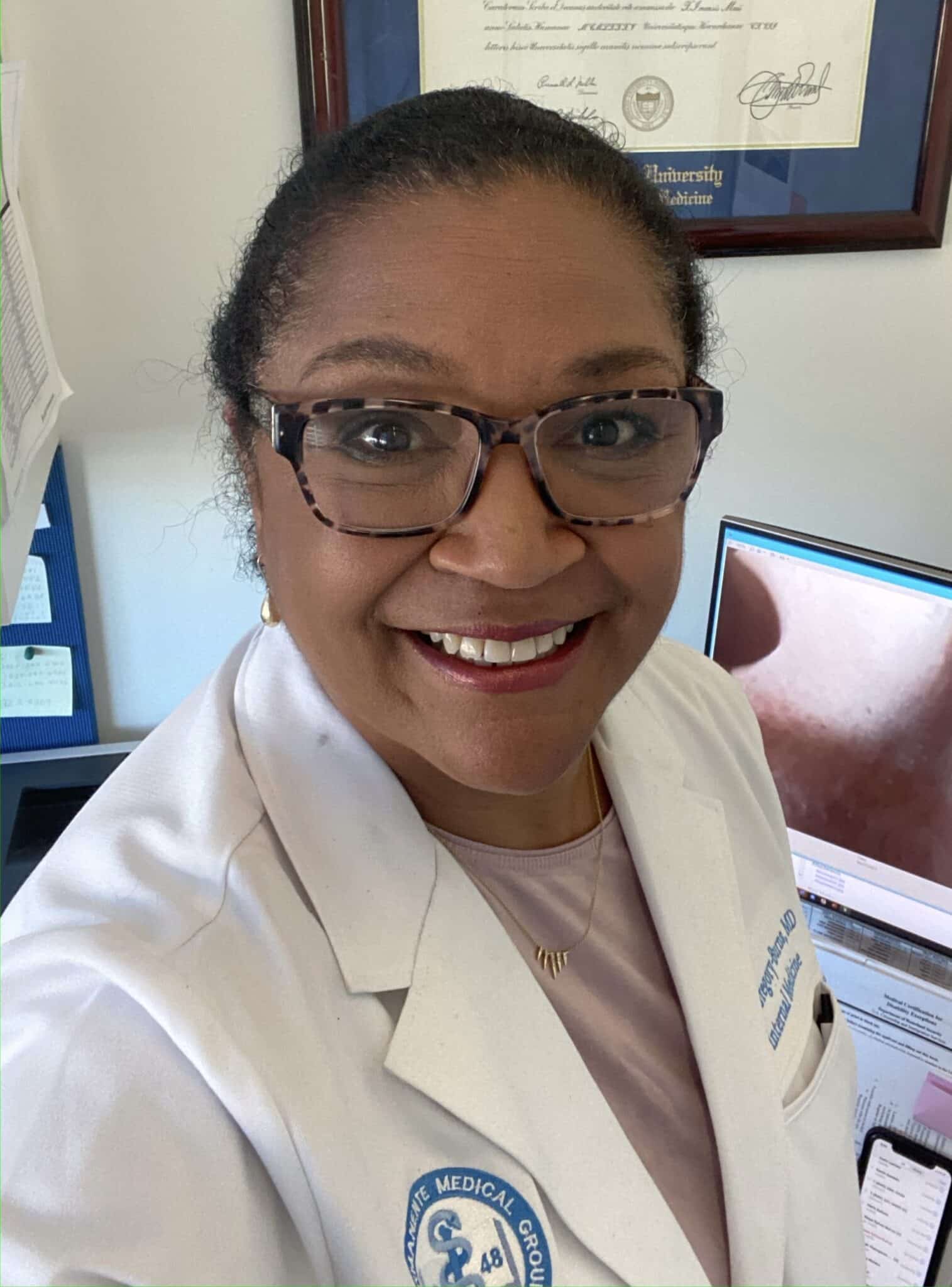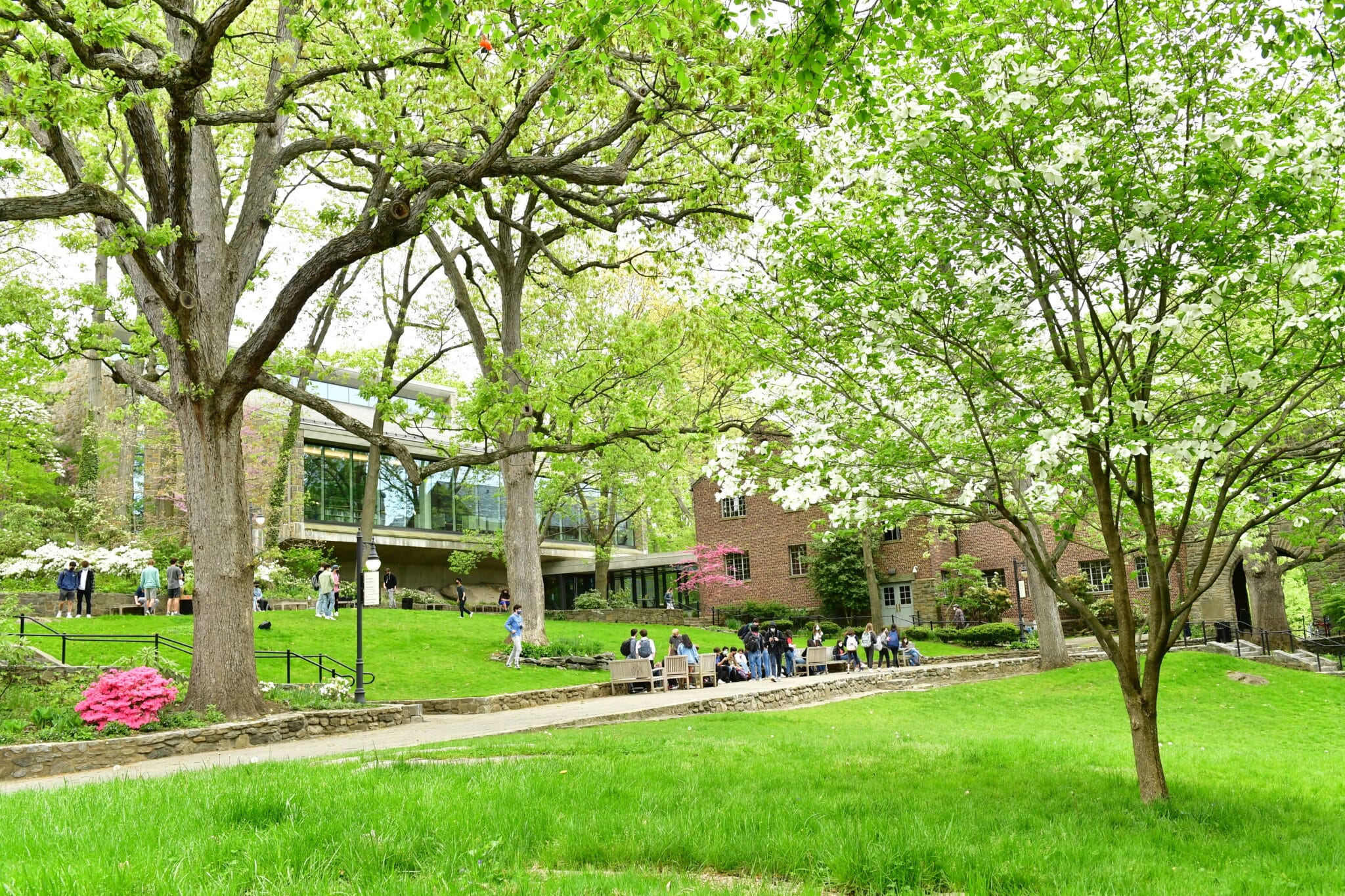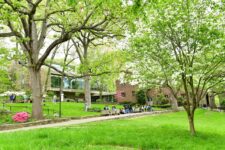Gina Gregory Burns ’77 attended Fieldston for six years. Burns always knew she wanted to be a doctor, and after graduating from Fieldston, she went on to study medicine at Yale University and Howard University College of Medicine. She’s been a doctor for over 30 years and is dedicated to using her practice to address underserved populations and to solve disparities in healthcare.

How long did you attend Fieldston, and what brought you to the School?
I became familiar with the three hill schools when my brother attended Horace Mann. At the time, I was a student at Hunter College Elementary School, which was held in an office building in Lower Manhattan. When it came time for me to attend either Hunter College High School, an all-girls school in another office building, or Fieldston, I knew I wanted to go to a coed school where there was grass and outdoor space!
Do you have a teacher who stands out from your time at Fieldston? Or a class you took that you especially enjoyed?
I was flipping through my yearbook, and all of these memories came flooding back. What I loved about Fieldston was how the teachers inspired us and taught us to think critically and to question and analyze everything. Harry Smith, who taught English, would have us read Shakespeare out loud. We were completely immersed in literature from a different time and would talk about the similarities and differences in how ideas were expressed. How to think was a big part of my Fieldston experience. But a standout memory has to be when, in 7th Grade, I was given the opportunity to take a Latin class. My grandfather taught Latin and Greek at Howard University, so it was something already in my mind as a cool thing to do. It was a small class that would come in early, and we’d get to do things like read “The Odyssey” in Latin. Just like we had in Mr. Smith’s class, we’d find ways to relate to those stories from a different era and use them to pull us into grammar and language. Learning how to push ourselves outside of our comfort zones and feeling good about the challenge was really great.
What advice would you give to current Fieldston students?
Take advantage of the exposure and experiences that Fieldston has to offer! It’s incredibly special and unique, and sometimes you take it for granted. I learned everything from how to set type to woodworking to how to draw hands (I still have my sketchbook from when I learned how to draw hands!) to modern dance to how to write a 20-page paper in Spanish. Fieldston is a place where you’re respected for your potential and challenged to live up to it. When it comes time to leave high school, it can feel daunting to look ahead to what’s next, but as a student at Fieldston, there are already so many skills you’ve achieved and challenges you’ve overcome. All of these experiences and accomplishments are things you will carry ahead into the rest of your life.
What inspired you to go into the medical field, and how do you see the ethical education you received at Fieldston impacting your work today?
I knew I wanted to be a doctor from a young age. My grandfather was a doctor and I knew he had a challenging life, but the fact that he could do it despite all of that was inspiring. He taught my mom and uncle to be curious about science, so even though we grew up in a New York City apartment, we had microscopes and tons of books about science. I also grew up with the role models of my grandfather and one of his close friends, who was our doctor growing up, as examples of African American and Afro-Caribbean men practicing medicine. I saw people come from all over the city to see them, their stature in the community, and the trust people had in them. It was so inspiring to me. At Fieldston, my love for science continued with my classes, and I learned many of the foundations that I use to bring ethics and community to the forefront of the work I do today.
What is your favorite Fieldston memory?
There are a lot! But I remember when spring would arrive, everyone gathered on the Quad in the warm weather, full of energy and the excitement of being with friends. I am still in touch with friends like Dana Bowen Matthew ’77. We talk all the time, our families know each other, our kids know each other — it’s great. Our class has also done virtual meetups and even recently had Michael Lazarus ’77 teach us how to make drinks! Because I live in California, not New York, being able to stay in touch with my classmates on social media has been a lifeline. It reminds me of getting together and laughing with friends on the Quad.

